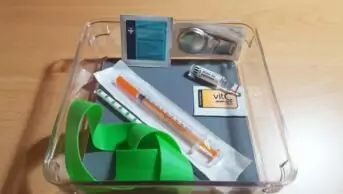
Psychonaught / Wikimedia Commons
The World Federation of Societies of Anaesthesiologists (WFSA) has called for support to protect the status of the anaesthetic ketamine as an essential medicine.
The plea comes in response to repeated attempts by China and other south-east Asian countries that have problems with ketamine abuse in the general population to have the drug listed on the United Nation’s schedule of controlled drugs.
But campaigners, including the WFSA, say that this would be disastrous in low and middle-income countries such as those in Africa and Asia where ketamine is often the only available anaesthetic. They also point out that the drug is widely used in caesarean sections and trauma surgeries and, as it is injectable, can be easily transported and stored in disaster areas and war zones.
The WFSA says that ketamine has been reviewed several times since 2004, when attention to illicit use was first drawn by the International Narcotics Control Board. However, the World Health Organization has consistently said that on the balance of evidence, restrictions to medical access would be harmful to public health.
China tried to have ketamine scheduled as a controlled substance at the UN Commission on Narcotic Drugs in March 2015 and the matter was raised again at this year’s meeting in March 2016. The WFSA says that although these attempts have been unsuccessful so far, there is concern that China will continue to return to the issue.
Speaking at the World Congress of Anaesthesiologists in Hong Kong 28th August-2nd September 2016, WFSA president-elect Jannicke Mellin-Olsen, said: “We call on the UN’s Expert Committee on Drug Dependence not to recommend any further restrictions on ketamine pending the collection of more reliable and complete data on the effects that this might have on the availability of this essential anaesthetic drug, and on patient outcomes around the world.”


